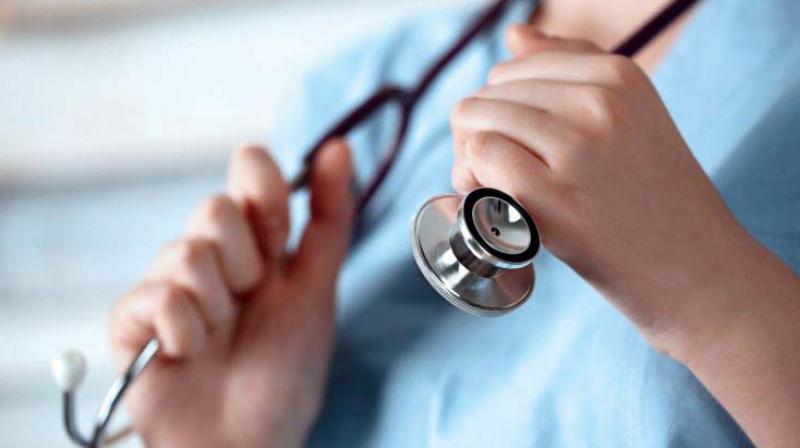Team ignored critical issues of Medical Bill: Activists
Education-centric issues were neither presented nor debated with Union Health Minister J.P. Nadda during their recent meeting

Bengaluru: Student leaders, social activists and groups of medical professionals have alleged that a contingent of medical practitioners and founding members of the Association of Healthcare Providers – India (AHPI) ignored their concerns on the proposed National Medical Commission (NMC) Bill, dubbed ‘anti-people’ and ‘anti-poor’.
They pointed out that education-centric issues were neither presented nor debated with Union Health Minister J.P. Nadda during their recent meeting to discuss the bill.
Ravinandan B.B., state vice-president, All-India Democratic Students’ Organisation (AIDSO), alleged that the delegation failed to raise these issues as some of them are associated with known medical institutions. “The NMC Bill pro poses that institutions will have the autonomy to decide the fee for more than 60% of the total seats. This will be a ‘legalised loot’ of medical education. The National Licenciate Exam (NLE), which replaces the existing, rigorous screening test, will make it easier for foreign students to get seats by paying huge sums of money as fee, affecting the chances of Indian students to pursue higher education. But the delegation completely ignored it,” he said.
He said that the contingent only debated against the bridge course which enables AYUSH practitioners to prescribe allopathic treatment.
Rajashekhar V.N., Secretariat Member of Save Education Committee, alleged that the AYUSH rule will have serious consequences and could affect the survival of the poor. “Medical knowledge is based on practical experiences and regional exposure equally. How can a foreign medical student be given a licence to treat patients based on his/her performance in an online MCQ test,” he asked.
He said that while the Karnataka government has powers to decide the fee structure for about 85% of seats in private medical colleges, the NMC Bill will bring it down to a maximum of 40%, providing a ‘legal sanction to make medical education and public health a global commodity.’

